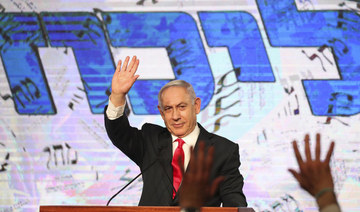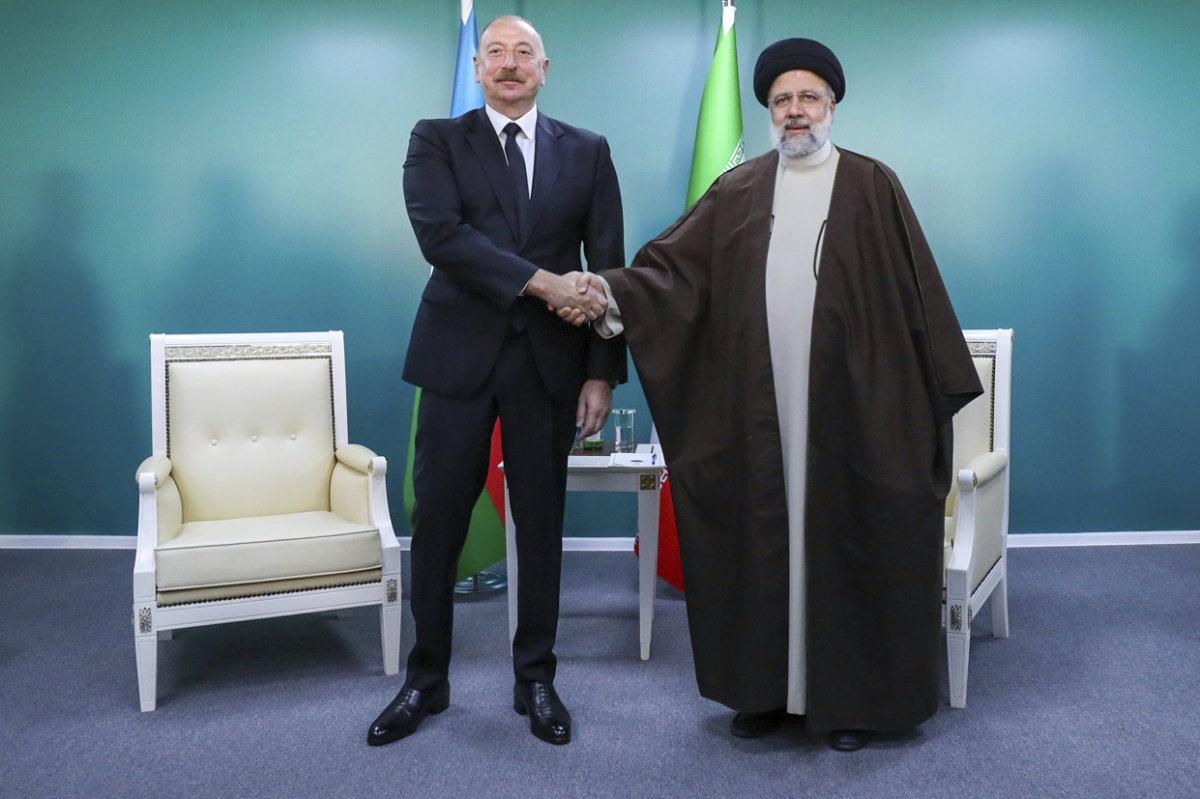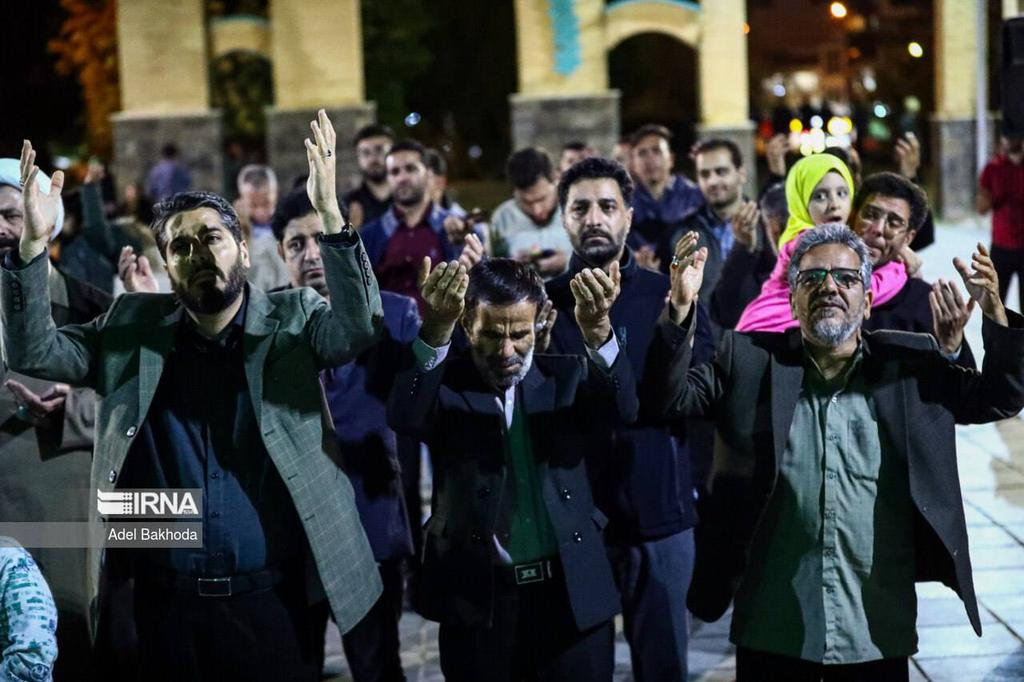JERUSALEM: Israel’s battle with Gaza militants and unprecedented inter-communal violence at home have further complicated efforts to form a government, raising the specter of yet another general election, experts say.
That could be a political boon to Prime Minister Benjamin Netanyahu, whose best hope of extending his record 12 straight years in office could hang on what would be the fifth Israeli election since April 2019.
But the ideologically divided anti-Netanyahu camp still has a narrow window to reach a deal that would oust the hawkish premier: Centrist opposition leader Yair Lapid’s 28-day mandate to form a government expires on June 3.
“Most analysts regard a fifth election as the most probable outcome,” said Toby Greene, a political scientist at Bar Ilan University.
“But we have 10 days left, and that’s a very long time in Israeli politics.”
It was widely expected that any deal reached by Lapid would have to bring on board both Naftali Bennett’s right-wing Jewish nationalist Yamina party, and at least some pro-Palestinian and non-Zionist Arab lawmakers.
But hopes for any such deal were dealt a severe blow this month as militants in the Palestinian enclave of Gaza launched rockets into Israel, while multiple mixed Jewish and Arab communities inside Israel were gripped by a wave of inter-communal violence.
That forced Bennett to “reconsider his choice to form a government together with Arab-supported parties,” said Yohanan Plesner, president of the Israel Democracy Institute think tank.
Before conflict flared with armed Palestinian groups Hamas and Islamic Jihad on May 10, Netanyahu’s political future looked precarious.
On trial for bribery, fraud and breach of trust, the premier had failed in a March 23 vote to secure enough seats with his allies to build a majority in Israel’s 120-seat parliament.
Most analysts regard a fifth election as the most probable outcome.
Toby Greene, Political scientist
His mandate to form a government expired on May 4, handing Lapid a chance to try.
But Yonatan Freeman, a political scientist at the Hebrew University of Jerusalem, said it was in Israel’s “political DNA to support the incumbent” when conflict flares.
As Israel ramped up its air strikes in Gaza in response to Palestinian rocket attacks, Netanyahu made joint appearances with his bitter political enemy, Defense Minister Benny Gantz— uneasy bedfellows in a coalition that turned sour.
Crisis leadership, experts say, may have helped Netanyahu reinforce an image that has helped him endure in politics for decades: the security focused statesman who defends Israel against external threats.
The crisis also “caused a fissure among the opposing camp,” Plesner said.
Lapid’s best, and possibly only, hope of forming a government involved a prospective deal with Bennett’s Yamina party.
Bennett and Lapid are ideological opponents, but both have prioritized averting a fifth election and ending the divisive Netanyahu era.
A deal would have seen Bennett serving as prime minister in a rotation, an arrangement that could harm his standing among some right-wing supporters.
But at the same time, it would constitute a “huge opportunity for Bennett to present himself as prime ministerial material” as part of his efforts to become Netanyahu’s successor, Greene said.
And without Bennett, centrist former television anchor Lapid has little space to make a deal to unite the splintered anti-Netanyahu camp.
After the Gaza crisis, “it’s unlikely, but not impossible,” Plesner said.
Plesner said that Netanyahu, “as Israel’s most seasoned politician,” may be now able to coax rivals into his camp.
He listed Gantz, a centrist, and Gideon Saar, a right-winger who defected from Netanyahu’s Likud last year, as possible collaborators.
But with all blocs struggling to build a coalition, “the most likely outcome at this point is that Israel is headed to a fifth election,” Plesner said.
After Israel agreed a mutual cease-fire with Hamas and Islamic Jihad and the inter-communal violence eased, Lapid’s Yesh Atid party announced coalition talks would resume Monday, without Bennett’s Yamina.
Opening his party session, Lapid said: “I’ll do everything to form a government ... our negotiating teams are meeting and trying” to achieve that goal.
“The chances might not be high but while there is a chance, however small, we will leave no stone unturned,” he added.
Yet Freeman of the Hebrew University said the crisis could actually drive momentum toward a unity government.
The inter-communal violence saw both Arab and Jewish rioters attack religious sites, among other targets.
Freeman said the Arab violence in solidarity with Gaza raised profound concern across Israel’s security establishment: If the Hamas conflict were to flare again, so could the internal strife.
He suggested that the imperative to offer Arab lawmakers a role in the government as a gesture of unity could create an incentive for political compromise in the days ahead.
Whether Netanyahu or another leader is capable of crafting a broad, inter-communal coalition remains highly uncertain.
But, Freeman said, “people are looking for ways to mitigate against this violence happening again. Bringing more Arab politicians into the fold could be a way of doing that.”































